Open Heart Surgery Cost in India
Unlock Exclusive Discount : Your Gateway to Premium Healthcare with Medsurge India Health Value Card.

Unlock Exclusive Discount : Your Gateway to Premium Healthcare with Medsurge India Health Value Card.


Open heart surgery refers to a surgical procedure that involves the opening of the chest cavity to provide surgeons with direct access to the heart. This approach enables immediate intervention for various cardiac conditions. Each year, around 2 million people undergo open heart surgery worldwide.
India is globally acknowledged for its state-of-the-art medical infrastructure and innovative technology in open heart surgery. Numerous top-tier hospitals specializing in this procedure are situated in India. Furthermore, open heart surgery cost in India are considerably lower than those in other countries, particularly industrialized nations.
Open heart surgery cost in India starts from $1,500 and can go up to $7,500 depending on the type of procedure a patient may required.
| Type of Procedure | Price |
| Coronary Artery Bypass Grafting (CABG) | $2,200 to $4,400 |
| Angioplasty and Stent Placement Surgery | $1,800 to $3,900 |
| Heart Valve Repair/Replacement Surgery | $2,900 to $7,000 |
| Aorta Graft Surgery | $6,800 to $14,000 |
| Implantation of Pacemaker or Cardioverter Defibrillator Surgery | $2,900 to $5,500 |
| Pericardiectomy | $1,200 |
| Septal Myectomy | $2,400 to $4,800 |
| Heart Transplant Surgery | $22,000 to $30,500 |
| Implantation of Ventricular Assist Devices or Total Artificial Hearts Surgery | $55,000 to $97,000 |
| ASD Closure Surgery | $2,400 to $3,600 |
| Countries | Price of Open Heart Surgery |
| India | $1,500 to $7,500 |
| United State | $30,000 to $200,000 |
| United Kingdom | $25,000 to $40,000 |
| Australia | $30,000 to $40,000 |
| UAE | $25,100 to $32,990 |
| Thailand | $15,000 to $20,000 |
Note: Keep in mind that the cost stated above are only for the cost of the treatment there will be other additional costs for the final cost of the treatment.
While the cost of open heart surgery in India is less compared to other countries there will be other factors that can affect the cost of the final treatment cost. Here are some key factors that can affect open heart surgery cost in India:
Patient’s Health Condition: The overall health and age of the patient play a significant role in determining the success of the surgery. Pre-existing conditions such as diabetes, hypertension, or kidney disease may influence surgical outcomes.
Type and Complexity of Surgery: The specific procedure required (e.g., bypass surgery, valve replacement, or congenital defect repair) and its complexity can impact the cost, recovery time, and risks involved.
Choice of Hospital and Surgeon: The reputation of the hospital and the experience of the cardiac surgeon are critical factors. Leading hospitals with advanced technology and highly skilled specialists may offer better outcomes.
Post-Surgical Care and Rehabilitation: The quality of post-operative care, including infection prevention, monitoring, and rehabilitation services, significantly affects recovery and overall success.
Cost of Surgery: Factors like the hospital chosen, the duration of stay, and any additional treatments required can influence the total cost of open heart surgery in India.
Timing and Urgency: The urgency of the surgery can impact preparation time, testing, and overall planning, which might influence the outcome.
Open-heart surgery is a surgical procedure that entails the opening of the chest cavity to provide surgeons with direct access to the heart. This method allows for the direct treatment of various cardiac conditions.
To gain access to the heart, surgeons typically make an incision through the sternum (breastbone) and separate the ribs. This process is sometimes informally referred to as “cracking the chest.” A surgeon may suggest this open procedure if the patient is deemed physically capable of enduring it.
In cases where open-heart surgery is not advisable, surgeons have the option to perform various heart surgeries through smaller, less invasive incisions, including those made between the ribs on the right side of the chest. Annually, approximately 2 million individuals around the globe undergo open-heart surgery.
Open heart surgery encompasses a variety of procedures. Below are the different types:
Coronary Artery Bypass Grafting (CABG) is the most prevalent form of heart surgery utilized to address Coronary Artery Disease (CAD), characterized by the blockage or narrowing of one or more arteries. This procedure entails substituting a damaged artery or vein with a healthy vessel taken from another area of the body, allowing blood to bypass the obstructed artery. Consequently, it is often referred to as heart bypass surgery.
Angioplasty and Stent Placement Surgery are performed to alleviate blockages in the heart’s arteries using a stent. This procedure involves the insertion of a small stent or wire mesh tube into the artery to maintain its openness, thereby minimizing the likelihood of future narrowing.
Heart Valve Repair/Replacement Surgery is conducted to address heart valve disease, aiming to restore normal blood flow and cardiac function. This procedure may involve either repairing or replacing a malfunctioning heart valve with an artificial one, which can be achieved through open-heart surgery or via catheter insertion.
Aorta Graft Surgery is performed to treat an aortic aneurysm, which is the bulging of the aorta wall. This surgical intervention involves replacing the affected section of the aorta with a graft, an artificial artery constructed from specialized fabric, ensuring that blood can flow through a newly established pathway.
The implantation of a Pacemaker or Cardioverter Defibrillator involves the surgical placement of a permanent pacemaker or an implantable cardioverter defibrillator (ICD) beneath the chest. This procedure is designed to manage arrhythmias or irregular heartbeats. While pacemakers utilize electrical sensors to regulate heart rhythm, ICDs deliver controlled electric shocks to restore a normal heartbeat.
Pericardiectomy is a significant surgical procedure involving the heart, aimed at alleviating the rigidity of the heart chambers to facilitate proper blood filling. This operation entails the excision of the pericardium, the protective membrane encasing the heart.
Septal myectomy is a surgical intervention performed on the heart to address hypertrophic cardiomyopathy, characterized by the thickening of the heart muscle. The procedure consists of removing a small segment of the septum, thereby enhancing blood flow from the left ventricle to the aorta.
Heart transplant surgery is undertaken in instances of advanced heart failure resulting from coronary artery disease. This procedure involves substituting the impaired heart with a healthy heart obtained from a deceased donor. Such a transplant offers a chance for renewed life to individuals suffering from severe cardiac ailments.
The implantation of ventricular assist devices or total artificial heart surgery is performed as an alternative for patients with dysfunctional heart ventricles when a heart transplant is not feasible. These devices replicate the function of the ventricles, ensuring sufficient blood circulation throughout the body.
ASD closure surgery is an open-heart procedure aimed at repairing an atrial septal defect (ASD), which is a perforation in the heart. This surgery involves the application of a synthetic patch or tissue from another area of the heart to seal the defect. In certain situations, the defect may also be sutured or treated with an ASD closure device.
Before undergoing open-heart surgery, patients are required to complete several diagnostic tests that assist the surgeon in planning the operation and ensuring optimal care. These tests include:
Additionally, a physician will conduct a physical examination and assess the patient for other medical conditions, including hypertension, hyperlipidemia, diabetes, and stroke.
Heart surgery is a multifaceted procedure. The specific steps involved can differ based on the patient’s heart condition and the type of surgery being performed. Generally, the surgeon will:
The duration of open-heart surgery varies based on the specific procedure being performed. Certain surgeries may require six hours or more to complete. Anesthesia will be administered, ensuring that you remain unconscious throughout the operation.
Following the procedure, your stay in the hospital’s intensive care unit (ICU) may last for a day or longer, depending on your specific situation. Once you are stable, you will be transferred to a standard hospital room.
After undergoing open-heart surgery, you should anticipate spending several days recovering in the hospital. During this period, healthcare providers may conduct tests similar to those performed prior to your surgery to assess the functionality of your heart. They will also encourage you to engage in light walking within your room and the hallway to facilitate your recovery.
Your cardiac care team will provide guidance on how to properly care for your incision. You may be given a specialized firm pillow to support your chest when you cough, sneeze, or rise from bed.
Post-surgery, you might encounter the following symptoms:
– Constipation, which is a frequent side effect of potent pain medications.
– Feelings of depression or fluctuations in mood.
– Insomnia, or difficulty in achieving restful sleep.
– A decrease in appetite.
– Memory issues.
– Discomfort in the chest area due to muscle pain.
– Pain, bruising, and slight swelling around the incision site.
– General fatigue.
The success rate of open heart surgery in India is generally high even when compared with international standards. Open heart surgery procedures like coronary artery bypass grafting (CABG) surgeries boast a success rate of 95-98%, heart valve repair or replacement surgeries success rates around 90-95%Pediatric and congenital heart surgeries performed in specialized centers have success rates exceeding 90%. These are mainly due to the advancements in surgical techniques and the expertise of medical professionals in India, as well as the postoperative care available in India.
Medsurge India is one of India’s leading medical tourism companies. We provide patients with the best option for medical treatment globally according to their preference. We have collaborated with the best hospitals and doctors and are dedicated to identifying the most appropriate medical solutions tailored for our patients.
A: CABG (open heart bypass surgery) is another name for the procedure used to relieve clogged cardiac arteries. It can significantly lessen symptoms like shortness of breath and chest pain, as well as prevent heart attacks and enhance heart function. CABG may save a life. After CABG, the typical life expectancy is roughly eighteen years.
A: You can usually return to your regular activities one to two weeks following a minimally invasive cardiac treatment. Within a month following open-heart surgery, you can resume a variety of activities. Give yourself up to three months to recuperate and recover properly.
A: The overall survival percentage following heart bypass surgery is around 90%.
A: Even with the development of new methods like laparoscopic or minimally invasive surgeries, open cardiac surgery is still frequently carried out. Heart valve replacement or repair are examples of open heart procedures. repairing the heart's abnormal or damaged regions.
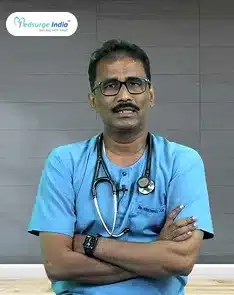
Interventional Cardiologist
Clinical Director
17+ Years
Care Hospital, Bhubaneswar
View Doctor
Interventional Cardiologist
Clinical Director
25+ years
Care Hospital, Bhubaneswar
View Doctor
Interventional Cardiologist
Clinical Director and Head of Department
36+ years
Care Hospital, Bhubaneswar
View Doctor
Interventional Cardiologist
HOD & Senior Consultant
17+ years
Meitra Hospital, Calicut, Kerala
View Doctor
Interventional Cardiologist
Senior Consultant
25+ years
Care Hospitals HITEC City
View Doctor
Interventional Cardiologist
Senior Consultant
10+ years
Care Hospitals HITEC City
View Doctor
Interventional Cardiologist
Director & Senior Consultant
22+ years
Care Hospitals HITEC City
View Doctor
Interventional Cardiologist
Senior Consultant
25+ years
Care Hospitals HITEC City
View Doctor
Interventional Cardiologist
Senior Consultant
28+ years
Baby Memorial Hospital
View Doctor
Interventional Cardiologist
Senior Consultant
14+ years
Baby Memorial Hospital
View Doctor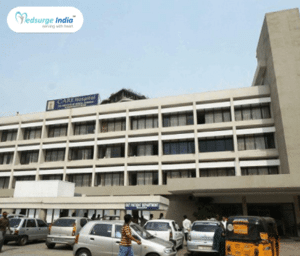
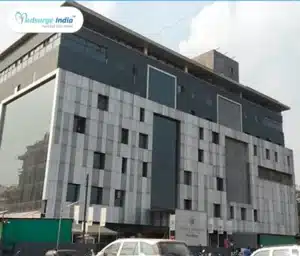
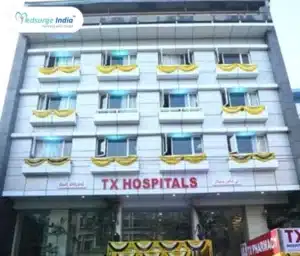
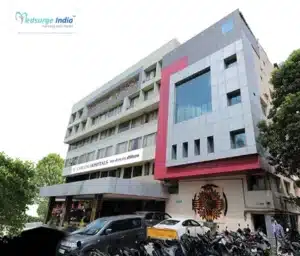



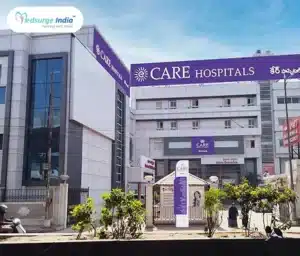
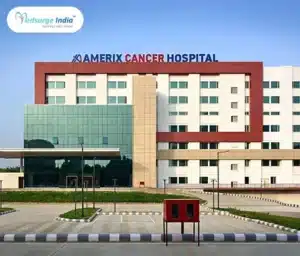
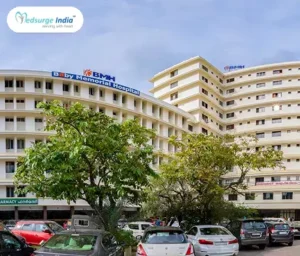
By using our site, you agree to our Terms and Conditions, Privacy Policy and Refund Policy. Medsurgeindia does not provide medical advice, diagnosis, or treatment. The information provided on this site is designed to support, not replace, the relationship that exists between a patient/site visitor and his/her existing physician. We also Accept International Payments.

Copyright © 2025 NSM ONLINE SOLUTIONS PRIVATE LIMITED. All rights reserved.